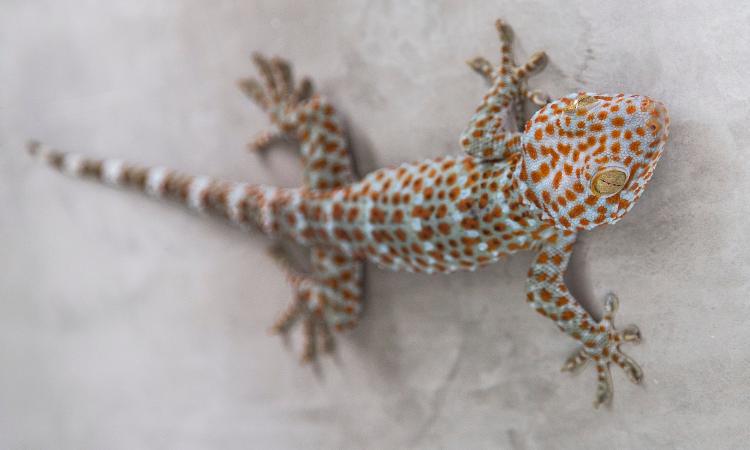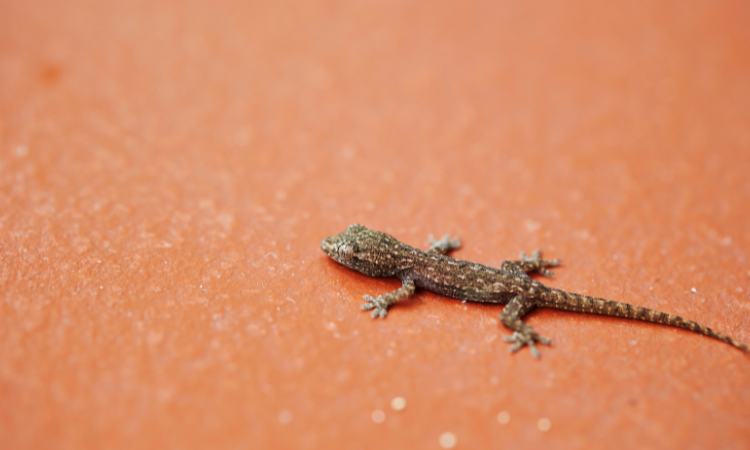Do you love your gecko but worry about the possibility of them giving you salmonella? While the risk is low, it’s important to know what precautions you can take to prevent infection. Read on to learn more about gecko salmonella and how to keep yourself safe.

What is salmonella and how does it affect humans and animals
Salmonella is a type of bacteria found in food and water sources, as well as on human and animal skin. While it can affect animals like geckos, it must be noted that salmonella poses an even greater danger to humans.
Consumption of contaminated products like poultry, eggs and vegetables can result in severe gastroenteritis, flu-like symptoms and more serious health risks.
The Centers for Disease Control and Prevention recommends taking extra precaution by washing hands regularly, storing food safely and avoiding contact with infected geckos or other sick animals to avoid catching the disease.
Do geckos carry salmonella and can they transmit it to humans
In the animal kingdom, geckos are known for their distinctively sticky toes and attractive colors. However, geckos can also be associated with something much less pleasant – Salmonella.
Studies have shown that geckos can actually carry the bacteria within their intestines, yet it is not known for certain if geckos can transmit salmonella to humans through contact or ingestion. In humans, salmonella often presents itself as a gastrointestinal illness, so it is important to take the necessary precautions when owning geckos as a pet.
Make sure your gecko is kept in a clean environment and always wash your hands thoroughly after contact with them and their habitat.

How can you protect yourself from salmonella if you have a gecko as a pet
Geckos may seem cute and friendly, but they can actually be a source of salmonella if proper precautions aren’t taken. To keep you and your gecko safe, the most important thing to do is wash your hands after handling them or cleaning their habitat.
Additionally, it is important to keep the gecko’s enclosure clean, as bacteria builds up over time which can increase the chance of salmonella contamination. Finally, purchase gecko food from a trusted supplier and store it properly, since food-borne illness involving salmonella can be transmitted through gecko feed purchased at pet stores.
Following these basic steps can help protect you when caring for your gecko pet and reduce the risk of contracting salmonella.
What are the symptoms of salmonella poisoning in humans and animals
Salmonella poisoning is one of the most common illnesses in humans and animals, with geckos being no exception.
Symptoms of salmonella poisoning in geckos include lethargy or listlessness, decreased appetite, dehydration, regurgitation of food, swollen or inflamed abdomen due to lack of energy for digestion, and possibly even diarrhoea. In severe cases, geckos may become limp and even go into shock.
It is essential for gecko owners to watch for any signs of salmonella poisoning so that they can take their gecko to the vet as soon as possible. Treatment often entails antibiotics, fluids, vitamins and supported nutrition which will help a gecko make a full recovery.

How is salmonella treated in humans and animals
Salmonella is a potentially deadly bacteria that can cause food poisoning in humans and animals. It is important to take the proper steps to prevent and contain Salmonella, as it can be spread throughout a population quickly.
Luckily, treatment for Salmonella is available for both humans and animals. People are typically prescribed antibiotics to fight the infection, while geckos are usually treated with antiseptic treatments such as mercurochrome.
If a gecko’s eyes become infected with salmonella, drops made of silver nitrate may also be given for relief. Beyond that, proper hygiene should also be practiced when possible – especially when handling food – to prevent an outbreak.
Overall, salmonella can be a dangerous bacteria for both humans and animals and it is important to know how to protect yourself and your pet geckos. Salmonella can affect both people and animals in the same way, producing symptoms such as vomiting, fever, chills, and abdominal cramps.
People who have pet geckos should take a few precautions to avoid getting exposed to salmonella or transmitting it from their pet. If you think that you or your pet has been infected with salmonella poisoning, seek medical help right away.
In most cases, salmonella poisoning can be treated effectively with antibiotics and they can prevent any complications that might occur.
The best way to stay safe is by washing your hands after handling your pet’s food or toys, avoiding contact with their mouth, poop or urine, regularly cleaning their cage and tank, as well as staying up-to-date on vaccinations for yourself and your pets.
Related posts:

Hi – I’m Erika, the lead gecko enthusiast here at Geckopedia! I write articles about pet geckos, including what to feed your leopard gecko and how to help your pet gecko live a long, happy life! I graduated with advanced degrees from UC-Berkeley, the University of Southern California (USC) and Indiana University-Bloomington, where I studied Biology and Animal Science. I use my experience to help others learn about gecko care, and I am an advocate for all topics gecko related!
